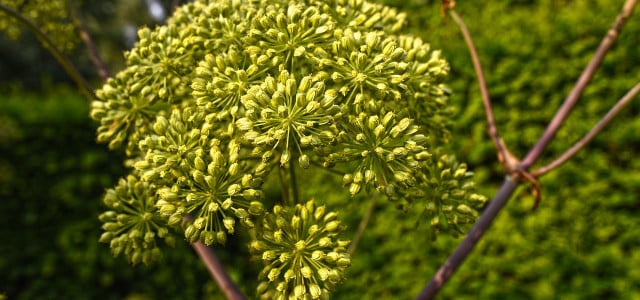
Angel root is a Northern European medicinal plant. In this article you will learn how to use the medicinal herb and what complaints it works.
![]()
Angel root (also called Angelika, poison or saint or saint bitter) belongs to the umbrella plants and is a medicinal plant found in Northern Europe and Northern Asia.
The plant can grow up to two meters tall and grows very quickly. Angel root blooms in summer, from June to July. However, only the roots and the rootsticks of the medicinal plant are usually used. You can harvest them in spring and autumn.
There is also an Asian angel’s root. Notes suggest that this type works differently than our native angel’s root.
What do I have to consider when collecting angel root?
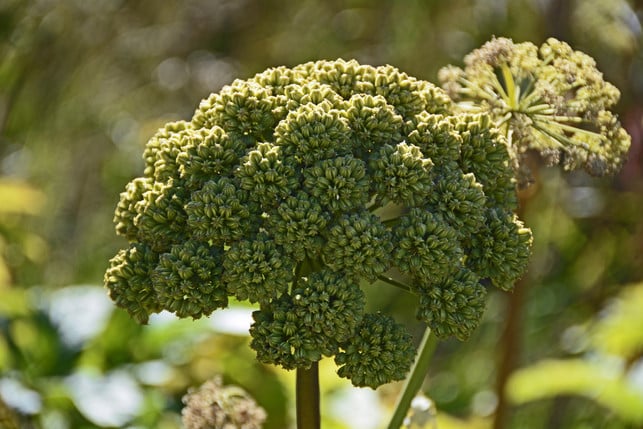
If you want to harvest angel root yourself, you should look for partially shaded places (for example on shores or damp meadows) for her. Since angel root can easily be confused with other plants, such as the poisonous sheer, you always have to be sure that you have collected the right plant.
An app for plant determination can help you collect, but you shouldn’t rely on you for security reasons!
Make sure you clean the roots thoroughly after the angel root. Insect infestation often also occurs at the roots. Before use, you should therefore cut the roots lengthways and hang it out to dry.
You can also buy the dried roots in the pharmacy or online, for example at Amazon in organic quality.
Angel root as a medicinal herb
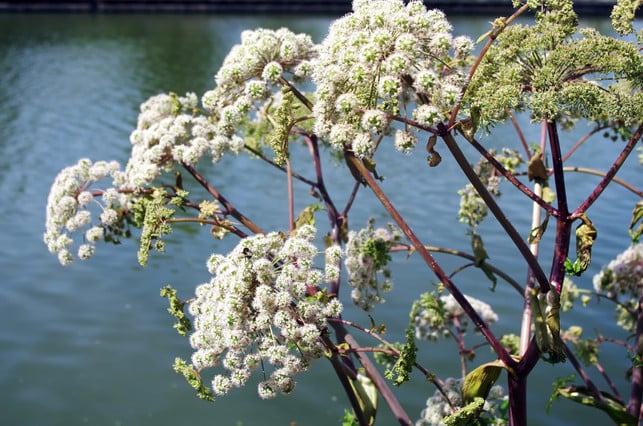
Angel root contains some ingredients in the roots that make the plant an effective medicinal plant. The important ingredients include:
- essential oils
- Saponine
-
Furocumarine (also furanocumarine)
Due to the high proportion of essential oils, Engelwurz has a very strong aroma, both in the taste and in the smell.
Angel root is a versatile medicinal herb and should be able to help with the following symptoms:
- Infectious diseases such as colds due to the antiviral and antibacterial effect
- Inflammation
- Problems of the digestive system
The Chinese angelica is often used in the event of menstrual complaints and relief of pain.
Application of angelica
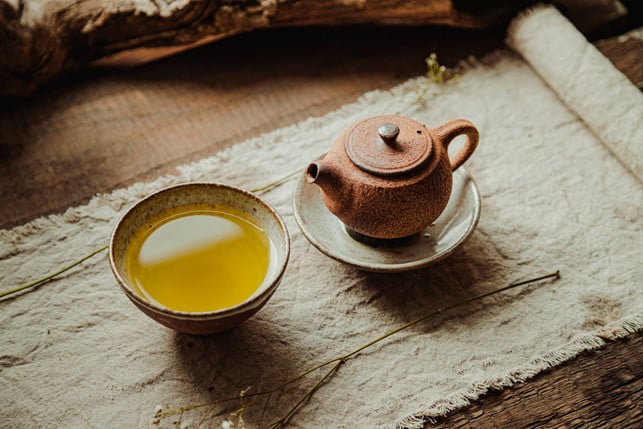
You can take angel root both internally, in the form of tea or tincture, as well as on the outside with an ointment or body oil. In the tea, angelica root against the complaints described above should help.
To make the tea, you need:
- 1TL dry root from the angelic root
- 1 cup of boiling water
- Depending on your desired, other plants for the taste
Preparation of the tea:
- Pour the angel’s root with the boiling water and let the tea pull for 15 minutes. Then you can strain and drink the mixture.
- If the pure taste of angelica is too intense for you, you can pour other plants such as lemon balm or strawberry leaves or dried apple pieces.
- You can drink the tea twice a day after eating.
The medicinal plant is also processed in ointments. You can buy angel root ointment in pharmacies, for example.
Make angel root balm for sniff nose yourself
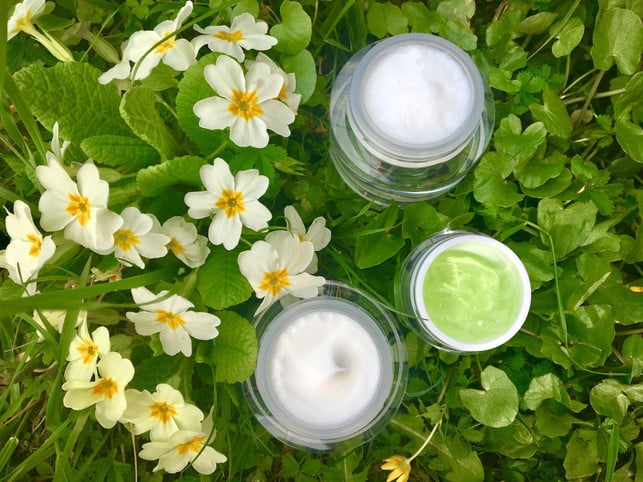
Angel root is often used as a balm in a cold. Under the nose, it should alleviate the irritated skin and ensure better breathing.
For the balm you need the following ingredients:
- 10 g of dried roots of the angel root
- 300 g olive oil
- 25 g beeswax
- 20 g lanolin
This is how you succeed in making:
- Put the dried angel root in an open screw glass and pour it over it with the olive oil.
- Let the whole thing move out in a water bath for several hours at about 60 degrees.
- Afterwards sieve the remains of the dried angel root. For example, a cloth made of linen is suitable for this.
-
Milz beeswax and lanolin and add the angel’s root oil.
- Mix everything thoroughly and let it cool briefly.
- You can then carefully fill the balm into a crucible.
The homemade angel root balm holds for about a year.
Possible side effects of angelica
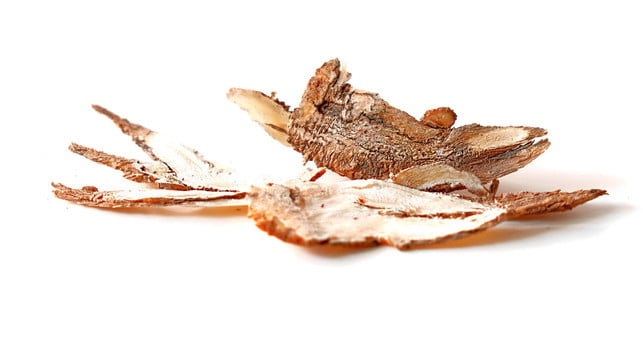
The furocumarins contained in the angel’s root increase the light sensitivity of the skin. If you take a regular angelic root, you shouldn’t be too much in the sun to avoid skin inflammation.
Furthermore, you should not use angel root if you suffer from gastrointestinal ulcers. If you are pregnant, it is advisable that you clarify taking your doctor. In general, it is always worthwhile to get medical advice if you want to try out medicinal plants.
Revised by Lea Hermann
Read more on utopia.de:
- Goldrod: Effect and application of the medicinal herb
- Shepherd’s paw herb: effect and application of the forgotten medicinal herb
- DIY-Spitzwegerich ointment against cough and itching
** marked with ** or orange underlined Links to sources of supply are partially partner links: If you buy here, you will actively support Techzle\.com, because we will then receive a small part of the sales proceeds. More information.